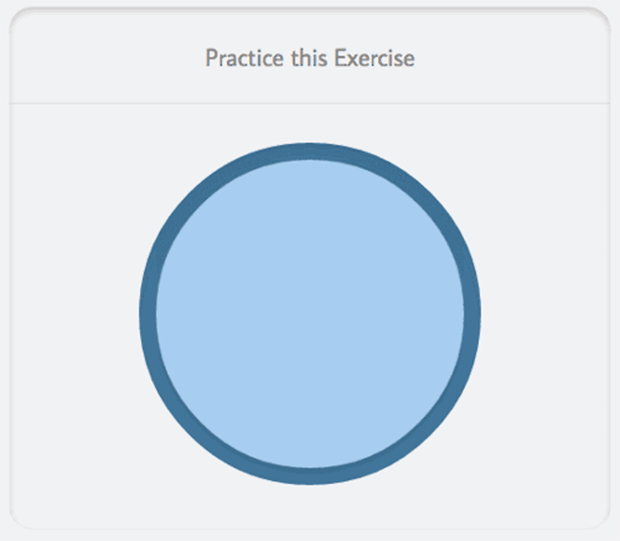Why am I an angry dad?
It is not uncommon for dads to be angry. In fact, it’s a normal emotion that can happen in any family. But what are the types of anger that fathers experience? And how can they deal with them?
In this article, we will explore 5 triggers of anger that dads might feel and how to manage them.
Trigger 1 – Stress
Similar strategies are used to control stress and anger. One explanation for this is that both stress and anger have a psychological component, making it possible to control them mentally. Understanding the relationship between these two emotions is crucial because they both have the potential to negatively impact us, especially if they are left unmanaged.
There are a number of different things that can affect anger and stress; Long-term stress and anger exposure can harm our physical health. Getting stressed about deadlines, worrying about money or shouting at the kids are but a few examples. It may increase our blood pressure, which can lead to other problems that have an impact on both our physical and emotional well-being. Our interpersonal relationships may suffer as a result. Beyond that, excessive levels of stress and anger can lead to the development of bad behaviours that get harder to manage over time. Anxiety may increase as a result of either of these effects. Being an angry Dad isn’t good for our health or our relationships!
We need to consider how these emotions affect our lives in order to start managing the negative impacts of stress and anger. Anger can result from stress, which might result in further stress. Although neither emotion is a good thing, we shouldn’t try to force them away. Instead, we should work to regulate them by working on our understanding of the elements that influence anger and stress and developing coping mechanisms and build healthy anger management strategies.
Tip to manage stress – Breathe deep and relax
Your body and mind may feel as though they’re operating on overdrive when you are feeling stressed. Slowing your breathing and concentrating on relaxing your muscles is the simplest and most straightforward approach to relieving the stressful effects of anger. Inhale deeply for 4 seconds into your chest and stomach, hold for 2–4 seconds, and then exhale for 4 seconds. Your pulse rate will slow down as a result, and you’ll have some time to gather your thoughts.
Counselling for men
Trigger 2 – Feeling frustrated or powerless
Regardless of a father’s upbringing, those who believe they can control their own destiny—tend to be happier, healthier, and more effective. Even the most difficult situations can be made tolerable if we believe we have some control over the outcome. While minor tensions can become overwhelming if we believe we have no control over the issue at all. Things as simple as the kids not tidying their rooms or indeed, even letting their dad into their room can be incredibly frustrating and can leave a father feeling as though he has no control, even in his own home.
“Powerlessness is inherently threatening, and it prompts a strong desire to reduce or eliminate that feeling,” says Eric Anicich, an assistant professor of management and organisation at the University of Southern California Marshall School of Business.
Tip to manage feelings of frustration or powerlessness – reconsider our approach to the problem
The first thing to do is recognise our own biases in the way we appraise our circumstances. Humans are usually quite bad at anticipating their future emotions and feelings. Positive life experiences, like winning the lottery, cause us to overestimate how happy we will feel and how long that feeling will last. Conversely, we find it difficult to envision how we will get past a threat or disappointment, such as our daughter going out to a nightclub for the first time. Negative experiences don’t usually last as long or have the same intensity as people expect. By keeping that in mind the initial sensation of pessimism we frequently experience upon hearing bad news can be lessened by just reminding ourselves of that truth.

Practically speaking, we can regain control of the situation by finding smaller ways to help with the situation. Setting your own schedules and making the most of your space may help you restore some sense of autonomy if you have been forced to work from home, for example.
“Do what you can, with what you have, where you are.”
Theodore Roosevelt.
Trigger 3 – Feeling a lack of respect
The feeling of being disrespected can be something that is quite triggering for many dad’s and can often make them feel quite angry. This could indeed be the reason why you ask yourself why am I an angry dad. In fact, most people have very little tolerance for being disrespected and those who consistently feel as though others have little or no respect for them often suffer with poor self-esteem and have a poor self image.
If you feel this way, it could be worth asking yourself “what does it mean to be disrespected”? You’ll probably find that your answer is different for example, to the dad sitting next to you. What you feel is disrespectful, may not feel disrespectful to someone else. For example, you may feel that it’s disrespectful of your son not to thank you for buying him an ice cream but another dad might be fine with it. That other dad may feel it’s disrespectful for their daughter to go to bed without saying “good night” but it might not bother you at all.
Being disrespected is a subjective feeling and will differ from person to person, from dad to dad. As it’s a personal feeling and differs depending on your own values, there’s a possibility that it’s the way you think that is causing the feelings of disrespect, rather than someone, a child perhaps or a partner, being disrespectful. If you think about it, what motivation does someone have to disrespect you personally? Would one of your children, for example, really set out to hurt you? Are they even old enough to be capable of doing that to you? Disrespect can often be born out of anger, fear or frustration or all of those emotions.
Tip to manage feeling a lack of respect
If you find yourself immediately feeling disrespected when someone doesn’t behave as you’d expect them to, you may be assuming the worst and jumping to conclusions. Challenge yourself to think of why a person may have behaved the way they did. For example, if someone pulled out on you in traffic, are they really being disrespectful to you personally or could it be that they’re late for work? Could they be preoccupied with some bad news about an elderly relative and didn’t realise they hadn’t considered you? Below are some things you can ask yourself when you are feeling disrespected that will make you feel better and help you with wondering why you’re an angry dad.
- Will whatever it is that has made me feel disrespected matter to me in 12 months or even a few day’s?
- Am I responding appropriately? Or am I responding with anger and frustration. Should I try addressing the issue calmly and assertively?
- Am I communicating my expectations clearly? Ensure that your children understand your expectations for respect and behaviour.
Trigger 4 – Lack of sleep
A lack of sleep can significantly contribute to feelings of being disrespected by your children. Sleep deprivation often leads to irritability and a shorter fuse. This can make even minor misbehaviors or disagreements with your children escalate into major sources of frustration and perceived disrespect.
Exhaustion also diminishes your ability to empathise with your children’s needs and emotions. This may cause you to interpret their actions as intentional disobedience or disrespect when they may simply be expressing their own needs or frustrations.
Furthermore, sleep-deprived dad’s may struggle to make rational decisions and react impulsively to perceived challenges. This can lead to misinterpretations of your children’s behaviour and heightened feelings of being disrespected. This emotional vulnerability means that your children’s actions, even if not intended to be disrespectful, can feel hurtful or offensive, further intensifying these feelings.
Tip to manage a lack of sleep
To address the negative impact of sleep deprivation on your perception of respect from your children, consider implementing these strategies:
- Prioritize Sleep: Make sleep a priority by establishing a regular sleep schedule. Ensure you get enough hours of quality rest to enhance your emotional stability and patience.
- Share Responsibilities: Enlist the help of your partner or support network to share nighttime parenting duties. This allows for breaks and uninterrupted sleep, reducing sleep-related irritability.
- Mindfulness and Relaxation: Practice mindfulness techniques or relaxation exercises to manage stress and enhance your emotional resilience. Breathing exercises and meditation can help you stay calm in challenging parenting situations.
- Communication: Openly communicate with your children about your need for sleep. Explain that when you’re well-rested, you can be a more patient and understanding parent.
- Seek Professional Help: If sleep deprivation persists and significantly affects your ability to parent effectively, consult a healthcare professional. They can assess and address any underlying sleep disorders or recommend strategies to improve your sleep quality.

By prioritising sleep and adopting effective coping mechanisms, you can better manage feelings of disrespect from your children that may arise due to sleep-related irritability and stress. Ultimately, fostering a well-rested and emotionally stable environment benefits both you and your family.
Trigger 5 – Communication issues
Communication problems can make you an angry dad by creating frustration and misunderstanding. When parents and children struggle to express their needs, emotions, or expectations effectively, it often leads to conflicts, misinterpretations, and heightened anger. Inadequate communication can make a dad feel unheard or disrespected, triggering anger in response to perceived disrespect or disobedience.
Tip to manage communication issues
To address communication issues and mitigate anger, active listening is essential. Encourage open dialogue with your children, offering them a safe space to express themselves without fear of judgment. Teach them effective communication skills and actively listen to their concerns.
Model respectful communication, and when conflicts arise, seek resolution through calm discussions, empathy, and compromise. A therapist like myself can help you develop valuable tools for improving communication and reducing anger within the family dynamic.
“It is during our darkest moments that we must focus to see the light.”
Aristotle
In conclusion, understanding the factors that contribute to being an angry dad is the first step in becoming a more patient and understanding parent. From the pressures of life to miscommunications and unresolved personal issues, anger can easily find its way into our interactions with our children. However, it’s important to remember that anger doesn’t have to be the default response.
In this blog post, we’ve explored five solutions to address and manage anger as a parent:
- Prioritizing self-care and managing stress to maintain emotional balance.
- Setting realistic expectations for yourself and your children.
- Improving communication through active listening and empathy.
- Seeking professional help when unresolved personal issues contribute to anger.
- Modeling healthy emotional expression and conflict resolution for your children.
By implementing these solutions, you can create a more harmonious and nurturing environment for your family. This will foster a deeper connection with your children and reduce anger’s impact on your role as a dad. Remember, parenting is a journey of growth. With the right tools and mindset, you can navigate it with patience, empathy, and love.













